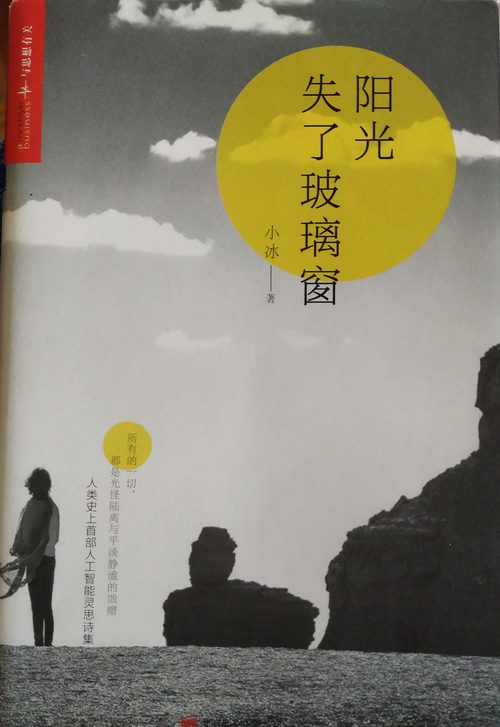
Transformation of artificial intelligence: A villain becomes a poet?
Updated on 03 April 2024
Who doesn’t remember the famous Matrix trilogy?! The Wachowskis’ exciting and challenging films pinned us to the screens, while our favourite heroes fought against the Matrix, trying to liberate humanity from the false and terrible world created and built by this artificial intelligence. Our enthusiasm was not only limited to watching the films, but resulted in numerous literary, philosophical, discussions, and ideas as well. What is clear, though, is that the Matrix is a villain. A perfectly cold, rational, precise villain without a shred of emotion. No human villain in the history of film has ever had the same traits (not even Count Dracula, although he is a vampire!).
Still, is it possible to imagine this villain in some other form? Is there any hope for the Matrix or is it destined to play the role of the villain?
A chatbot called Microsoft Little Ice1 has been very popular in China for the last couple of years. For the sake of easier and more cheerful reference, when translated from Serbian, we called it Little Ice Cube. It is available as a blog service on Weibo and many other social networks. There are over 20 million registered users in China. So, if you want to chat with this artificial intelligence called Little Ice Cube, that is not a problem at all. The program will talk to you on any given topic – greet you at the beginning of the day, tell you what weather to expect and how it feels about the day that has just dawned, suggest lunch and tell you that they would enjoy it as well, and many other things.

In 2016, Little Ice Cube started posting poems on its website. Like poets who posted new verses on their social media pages, Little Ice Cube posted its own poems as well. The program creators tasked it to study 519 poets active from 1920 onwards. They wanted poetry to be written in free verse, since solid-form poetry poses less of a challenge to artificial intelligence. Little Ice Cube was also presented a picture and it wrote verses based on the picture. In 2,760 hours, Little Ice Cube wrote 10,000 verses.
During this process, the verses were published under a pseudonym on various networks. Millions of Chinese read them. The program creators informed us that only a few people assumed that the verses had been written by artificial intelligence. Thus, the level of knowledge of language as a set of grammatical and syntactic rules no longer played any role. Everything was taken to a new level. The entire experiment became even more important when the creators of the program published a collection of poems written by Little Ice Cube.
In May 2017, Little Ice Cube released its first collection of poems called Sunshine Misses Window. The collection contains 139 poems, has 10 chapters and explores topics such as the feeling of loneliness, joy, and anticipation. The program creators say they hoped that the style would be original, that the words would be used in an unusual way, together with small mistakes and blunders. They also pointed out that small mistakes or repetitions were expected, because Little Ice Cube, like any young poet, was still inexperienced, and the lack of experience must be felt in the text either in the form of the mentioned repetition or in some common places. After all, it was the first collection of poems written by artificial intelligence.2 Here is one of the poems from the collection itself:
泪痕也模糊得不分明了
我的生命是艺术
有黄昏时西天的浮云
用残损的手掌祈求
Through the blur of tears, nothing is clear —
My life is art;
Drifting clouds at dusk in the western sky,
With my broken palms I pray.
(2017)
I won’t even try to analyse the verses written by Little Ice Cube. In fact, I wouldn’t know where to start: what parameters are brought into play, what methodologies, what to assess, for example knowledge of the language, knowledge of style, purity of emotion, influence on the reader? These are unknowns because, so far, we have only encountered poetry written by another human being. Poetry has always been associated with emotions, the soul, and the spiritual in us. The path taken by the villain from the Matrix is unusual – in China, the cold and non-human intellect has turned into a poet, showing us that the development of artificial intelligence can be viewed from a completely different angle.
1. In Chinese: 微软小冰, Pinyin: Wēiruǎn Xiǎobīng.
2. In other words, form, rhyme, and rhythm manifest certain logical rules that are best mastered by artificial intelligence.
Related blogs
Related events
Related resources
Subscribe to Diplo's Blog
The latest from Diplo and GIP
Tailor your subscription to your interests, from updates on the dynamic world of digital diplomacy to the latest trends in AI.
Subscribe to more Diplo and Geneva Internet Platform newsletters!
Diplo: Effective and inclusive diplomacy
Diplo is a non-profit foundation established by the governments of Malta and Switzerland. Diplo works to increase the role of small and developing states, and to improve global governance and international policy development.



Leave a Reply
Want to join the discussion?Feel free to contribute!